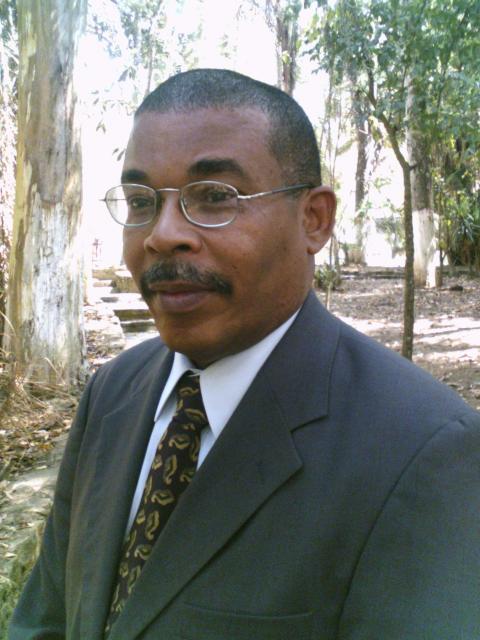
Alvar Bramble is an industrial engineer and is Research Engineer for the Global SoS Network.
From the Business Process Reengineering (BPR) approach, for over four decades Mr. Bramble has investigated the sociotechnical constraints that impede the increase of sustainable productivity in the Global South. Mr. Bramble has also worked on the BPR approach to safety in ground transportation systems.
Mr. Bramble holds a degree of Bachelor of Engineering (BEng. Industrial) from Pratt Institute, Brooklyn, New York (1977). He is an active member of the Institute of Industrial and System Engineers, IISE.
Because of his interest in ending industrial underdevelopment, he studied mechanical technology and business administration at the College of Staten Island (SICC), of the City University of New York (CUNY), until 1973 and received an AAS Degree in 1976.
Operations Research Achievements:
Helped Canada Save the Lives of Many Canadian Citizens, and Billions of Dollars
Before the start of the hostilities in Iraq in 2003, Mr. Bramble sent Best Constituent Practice proposals for Iraq to the government of Canada as a peaceful Win-Win alternative that would help solve the fundamental problem in that nation. Although warfare activities were initiated, the Government of Canada took the BCP initiative into account.
According to early 2003 press reports, Canada planned to form part of the coalition that would invade Iraq. However, just after the invasion began in April 2003, the then Prime Minister of Canada, The Honourable Jean Chrétien, sent Mr. Bramble a note of appreciation through his Minister of Foreign Affairs, The Honourable Bill Graham. The note indicated that the BCP concept was instrumental in Canada’s ultimate decision not to participate in that military conflict.
Through the BPR Approach, Determined a Technological Solution to the Conflict, Underdevelopment, and Global Poverty Problems
After over three decades of inquiry, Mr. Bramble has found that as System of Systems (SoS), legislative systems cannot function properly if constituents of the legislative function do not communicate with their legislators at the Public Sector System, especially when inadequate postal services are themselves a constraint. Thus, the quality of postal serviceis has a powerful relevance over the intricately linked problems of low national productivity, industrial underdevelopment, and of global poverty.
The steps necessary for eradicating the industrial underdevelopment problem are listed in the unpublished working paper titled The Reengineering of Emerging Legislative and Postal Systems. The document identifies constituents as the fundamental components of the legislative function of legislative SoS. Legislative reengineering calls for postal services, and especially the Internet, to be used intensively so that constituents in emerging countries, and excluded constituents in developed nations, can acquire the capacity of influencing their legislators. Once constituents employ Best Governance Practice, any nation –no matter how poor- can acquire the capacity to resolve its own constituent conflict, and begin to increase its national productivity as part of a sustainable process of becoming industrialized.
Additional Operations Research:
Derived a BPR/System of Systems Engineering (SoSE) methodology to Solve the Road-Vehicle Crash Problem
Mr. Bramble has identified the isomorphism between legislative SoS and transportation SoS. As a result, he has devised an analytical model for reducing and eliminating the constraints that cause injuries and deaths in ground transportation SoS. The concept is called Quality Driving, an application of industrial engineering application to safety and sustainability to national ground transportation systems.
Transportation systems are systems made up of other systems that need motorists to meet specific performance and organisational criteria. The concept is outlined in the unpublished document Quality Driving. After proper exposure to Quality Driving knowledge, motorists will use their Teledemocratic Infrastructure to participate by contacting their legislators in order to eliminate assignable causes of road crashes: thus reducing variance. The eventual goal of a Quality Driving will be the reduction of the actual 1.3 million yearly deaths from road-vehicle crashes, by an estimated 99.7 % (6 Sigma, assuming normal data distribution).
|